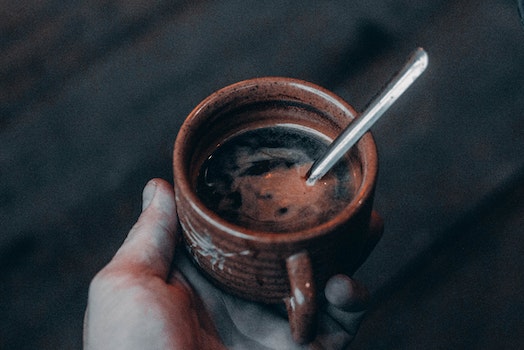Coffee is inarguably the world’s most beloved beverage, with as many as seven in 10 Americans drinking at least one cup a day. If you can relate to the average American, you drink as many as three cups per day, whether because you need a boost or out of sheer habit. While recent studies suggest that the more coffee you drink, the better, the truth is that many people can and do experience adverse side effects from too much caffeine intake. If you’re one such person, you may wonder, should you switch to decaf?
The Deal With Decaf

Unlike sugar, dairy and meat alternatives, decaf coffee really is just coffee sans the caffeine. To make decaf coffee, the manufacturers simply remove the caffeine from the beans by washing them in a solvent. Common solvents include organic solvents, water and carbon dioxide. Once the beans are virtually caffeine-free, the beans are then rinsed to wash away the solvent.
Once decaffeinated, you can roast and ground the beans as normal. Though the smell and taste may be milder than traditional coffee, the nutritional value should be similar to, if not the same as, regular coffee.
Decaf’s Nutritional Value

Speaking of nutritional value … Not only is coffee one of the world's most beloved beverages but also one of the healthiest. Coffee is loaded with antioxidants and is, in fact, the single largest source of antioxidants in the Western diet. Among other benefits, antioxidants reduce oxidative damage throughout the body and help to prevent chronic illness, including heart disease, type 2 diabetes and many cancers.
Decaf offers more or less the same health benefits as regular coffee. It, too, is loaded with antioxidants, though studies suggest that decaf typically contains about 15% less than caffeinated joe. This is likely due to the decaffeination process in which several properties are lost. Despite the small loss, though, decaf is still a huge source of antioxidants and, therefore, a better alternative to just about any other beverage.
In addition to being antioxidant-rich, decaf also contains trace amounts of other necessary nutrients. For instance, a single cup of brew provides 4.8% of your recommended daily potassium intake, 2.4% of magnesium, 2.5% of niacin and small amounts of vitamin B3. Though these amounts may seem minimal, they quickly add up if you are a multiple-cup-a-day type person.
Possible Effects of Going Decaf

Decaf may be similar in composition to regular coffee, and it may offer more or less the same health benefits, but it does differ in the effects it has on the body. Below are a few changes you may experience after switching to the dark side:
- You may feel more lethargic at first as your body gets used to life without caffeine once again.
- You may experience the symptoms of withdrawal, especially if you were a heavy coffee drinker. Don’t worry though, these symptoms — which may include headache, nausea and fatigue — won’t last long.
- You may notice a surge in appetite, as caffeine is an appetite suppressant.
However, switching to decaf is not all bad. After about a week or so of drinking strictly decaf, you may notice that you actually have more energy. Not only that, but your sleep quality may improve, your tummy issues may disappear and you may notice that you no longer feel anxiety for no discernible reason.
Decaf coffee is not for everyone. However, if you experience side effects after drinking regular coffee, or if you simply want to cut back on your caffeine intake, decaf could be a great alternative for you. You will still reap all the health benefits of the real deal but without any of the pesky side effects that come with caffeine overload.

